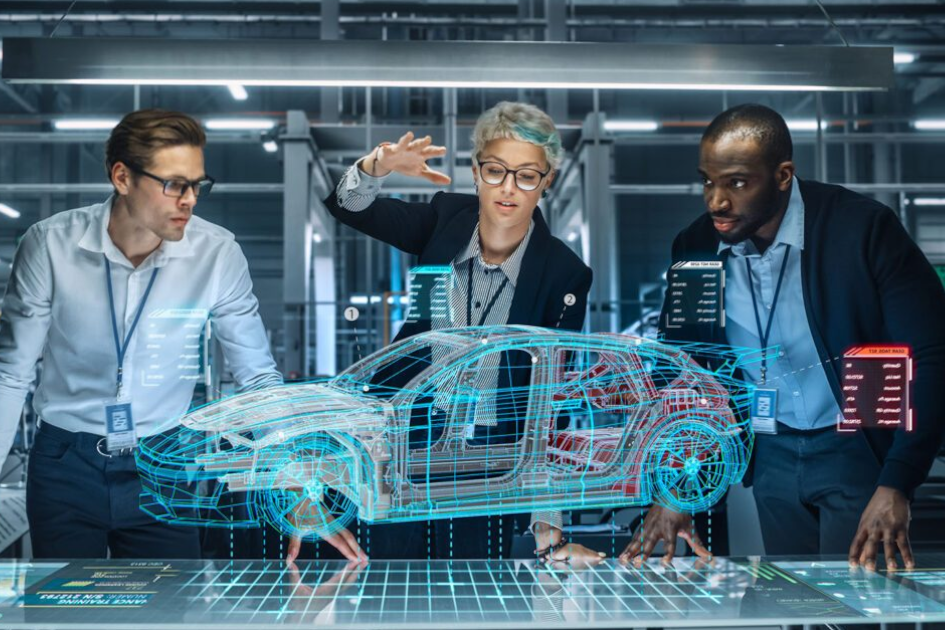Automotive industry: its key survival skill is a new approach to procurement.
The procurement organizations in the automotive industry are seens as some of the best in the world. For car manufacturers and suppliers, procurement is a core function, closely integrated with innovation management and production. However, in view of the change to zero-emission mobility and software-defined vehicles, new skills and cooperations are required.
It is not only important to develop strategies for electromobility together with existing suppliers, but also to approach new partners for innovative mobility services. To realize the mobility turnaround with competitive cost structures, our automotive experts assist you with tailored automotive consultancy.
Flexible approach to reflect new market realities and create stronger engagement with suppliers

OEMs must abandon the idea that, even though many of the components and systems they use have changed the way their organisation operates can remain the same.
Procurement will need to change across all dimensions including management structures, risk management, supplier relationship management, the contracting model and so on.
To reflect the new market realities and create a stronger engagement with suppliers, the automotive industry needs a new strategic procurement model. At its core is the idea that industry players must adopt a more flexible approach to procurement that does not depend for its success on their established market power. To guide the approach as companies transition to EV procurement and help them to decide the best way to address different procurement needs and suppliers, INVERTO has developed a Strategic Procurement Model. At its core are 6 categories: xEV, Components, ADAS/AV, Software & Applications, Extinction, Service & After Sales. A strategy matrix comprising six dimensions (sets of tools and actions) can be applied to optimize the procurement approach for each of these six categories.
See here how the blueprint looks like and how the model can be applied .
Improve Supply Chain Resilience and Risk Management in line with regulations

After years of tightening emisson regulations, the European Union has decided to phase out combustion engines for passenger cars from 2035. For OEMs and suppliers, this means that decarbonization and the transition to carbon-neutral powertrains must happen faster than some had originally planned. Suppliers with a focus on traditional powertrains must accelerate their transition to new business areas. You can find out how this can be done here.
The EU’s requirements do not stop at emission-free propulsion: in future, cars should not only drive CO2-free, but also be produced without emissions. The automotive sector is no stranger to fast innovation cycles, intense cost pressure, and tight supply chain integration across the globe.
The overall increase in value-add accounted for by suppliers in next generation vehicles (for most manufacturers), as well as the divergence in integration depth, have far reaching implications for the industry: Supply Chain resilience and gain further in importance. In addition, new regulations such as Carbon Border Adjustment Mechanism (CBAM) question current sourcing strategies.
Cost-efficient and sustainable procurement of scarce raw materials

The transition to e-mobility has greatly increased the complexity of obtaining raw materials. Due to the circumstances in which they are mined and produced, raw materials for electric, such as nickel, cobalt, and rare earths, have been challenging to obtain in a suitable way. However, more and more consumers are now placing demands on businesses to uphold social and environmental standards across their supply chains.
In addition, many of the materials are subject to strong price fluctuations. Solutions for cost-efficient raw material procurement can be found here.
The combination of sustainability and cost-efficiency criteria poses a special challenge for the procurement of critical raw materials. Our experts support you in mastering this challenge.
The semiconductor crisis has shown with unprecedented clarity that automotive manufacturers and suppliers are not only competing for resources within the industry, but also have to face competition across industries. This is especially true for the consumer electronics sector, where a few large players with high innovation speed dominate the market. Here it is important to guarantee supply security at all times through precise forecasting and stable partnerships.
Our experts in the automotive sector





